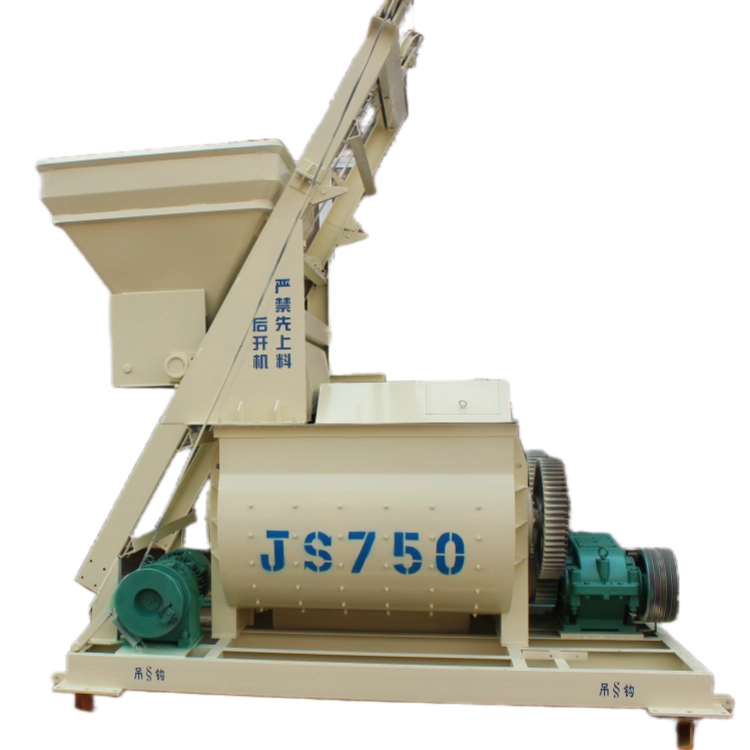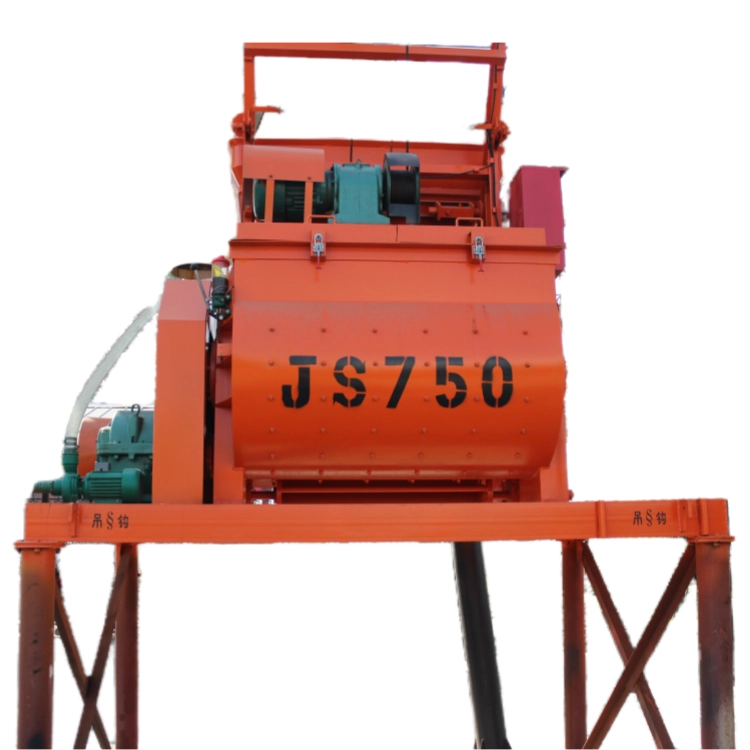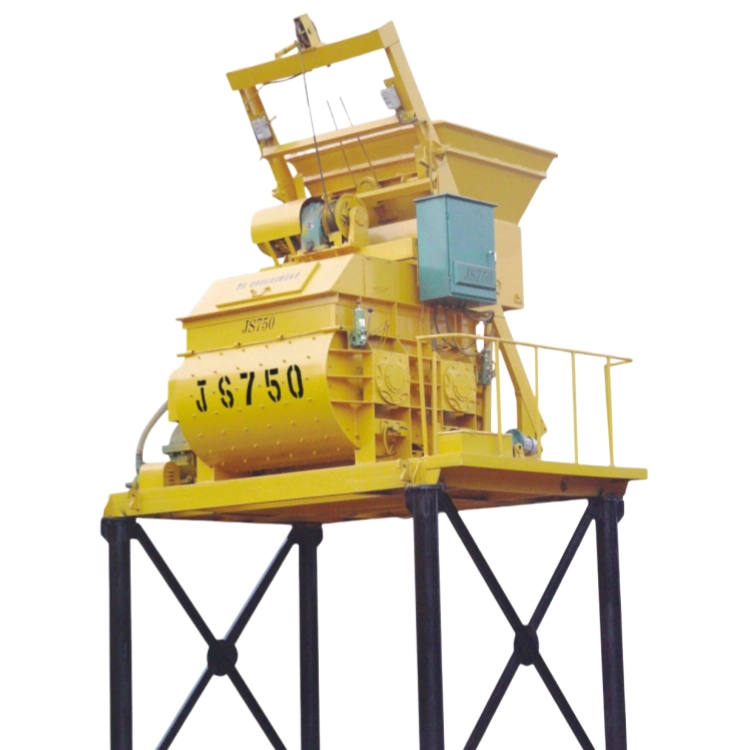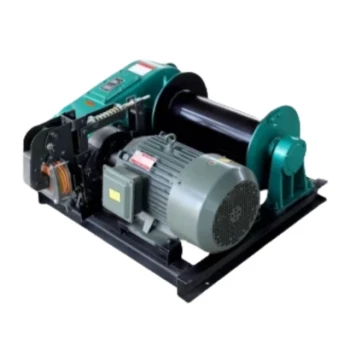
Large Concrete Mixer Machine
Skid Steer Self Loading Concrete Mixers for Construction
Item Number : JS750
Price varies based on specs and customizations
- Discharging capacity
- 750L
- Productivity (m3 /h )
- ≥35
- Dimension Work State (mm)
- 5025*3100*5680
Shipping:
Contact us to get shipping details Enjoy On-time Dispatch Guarantee.
Why Choose Us
Easy ordering process, quality products, and dedicated support for your business success.

Application
Concrete mixers, including skid steer concrete mixers and self-loading concrete mixers, are essential equipment in various construction and engineering fields. These machines are designed to handle a wide range of concrete types, making them versatile tools for different applications.
-
Construction Engineering Field
- Large and Medium-Sized Projects: Ideal for highways, bridges, water conservancy projects, harbor terminals, and industrial and civil buildings. They can produce medium to high-strength concrete, meeting the demands of complex construction projects.
- Diverse Concrete Types: Capable of mixing dry-hard, plastic, flowable, and lightweight aggregate concrete, as well as various types of mortar. This adaptability ensures they can handle different construction requirements with ease.
-
Flexible Supporting Use
- Stand-Alone Operation: These mixers can operate independently, making them suitable for construction in remote or challenging terrains where space is limited.
- Simple Mixing Plant: When combined with batching machines, they can form a simple yet highly automated mixing plant, perfect for small-scale projects in villages or towns.
- Core Equipment for Mixing Plants: They serve as the main machine in larger mixing plants, enhancing production efficiency for medium to large-scale projects.
-
Diverse Discharging Options
- Multiple Discharge Heights: Supporting discharge heights of 1.6m, 2.7m, and 3.8m, these mixers can seamlessly integrate with transportation equipment like dump trucks and concrete pump trucks, ensuring smooth operations on-site.
Feature
Concrete mixers, especially skid steer and self-loading models, are packed with features that enhance their performance, durability, and ease of use. Here are some of the standout features:
-
High-Efficiency Mixing
- Forced Double Horizontal Shaft Design: This design ensures rapid mixing with blade speeds up to 29.3 rpm, significantly reducing cycle times and boosting productivity.
- Homogeneous Mixing: Multiple sets of staggered blades provide vertical and horizontal mixing, ensuring uniform concrete consistency and eliminating issues like "ball-holding."
-
Durability and Reliability
- Wear-Resistant Materials: High chrome alloy liners, blades, and heat-treated spindles offer exceptional wear resistance, extending the machine's lifespan.
- Advanced Sealing Technology: Triple shaft end sealing (wear-resistant rubber + labyrinth seal + floating seal) prevents slurry leakage and reduces shaft end wear, ensuring long-term reliability.
- Stable Structure: The rigid frame design provides superior anti-seismic performance, making it suitable for high-intensity operations.
-
Automation and Ease of Operation
- Intelligent Control: Equipped with a PLC automatic control system, these mixers support one-button operation, overload protection, and short-circuit protection. Some models even offer remote monitoring capabilities.
- Hydraulic Unloading System: This system ensures precise and smooth unloading, with options for manual, electric, or hydraulic modes, enhancing operational flexibility.

Principle
The working principle of concrete mixers revolves around the efficient blending of raw materials to produce consistent and high-quality concrete. Here’s how they achieve this:
-
Mixing Mechanism
- Forced Mixing: The twin horizontal shafts with multiple blades rotate in opposite directions, forcing the materials to move vertically and horizontally. This ensures thorough mixing and uniform consistency.
- Speed Control: The blades operate at high speeds (up to 29.3 rpm), reducing mixing time and increasing productivity.
-
Material Handling
- Aggregate Compatibility: These mixers can handle aggregate sizes up to 80mm, accommodating a wide range of materials like crushed stone and pebbles.
- Dosing and Feeding: Materials are accurately dosed and fed into the mixer, ensuring the correct proportions for high-quality concrete.
-
Discharge System
- Hydraulic Discharge: The hydraulic system allows for precise control of the discharge door, ensuring smooth and efficient unloading.
- Adjustable Discharge Height: The discharge height can be adjusted to match the requirements of different transportation equipment, enhancing on-site efficiency.
Advantage
Concrete mixers offer numerous advantages that make them indispensable in the construction industry. Here are some of the key benefits:
-
High Production Efficiency
- Rapid Mixing: The forced mixing mechanism and high blade speeds ensure quick and efficient mixing, significantly boosting productivity.
- Large Capacity: With a discharge capacity of 750L and a feeding capacity of 1200L, these mixers can handle large volumes of concrete, making them ideal for medium to large-scale projects.
-
Durability and Longevity
- Wear-Resistant Components: High chrome alloy liners and blades, along with heat-treated spindles, ensure long-lasting performance even in high-intensity operations.
- Advanced Sealing: The triple shaft end sealing system prevents leakage and wear, reducing maintenance needs and downtime.
-
Ease of Operation and Maintenance
- Intelligent Control: The PLC system simplifies operation, while features like overload and short-circuit protection enhance safety and reliability.
- Modular Design: The modular structure makes disassembly and installation easy, and key components like seals can be replaced quickly, minimizing downtime.
-
Energy Efficiency and Environmental Friendliness
- Low Energy Consumption: With a total motor power of 30kW (mixing) + 7.5kW (winch), these mixers consume less energy compared to similar equipment.
- Dust Reduction: Equipped with dust removal devices, they reduce dust pollution, meeting environmental standards and ensuring a cleaner worksite.
-
Flexibility and Adaptability
- Multi-Scenario Installation: These mixers can be installed above-ground, semi-underground, or vertically, adapting to various site conditions.
- Aggregate Compatibility: They can handle a wide range of aggregate sizes, meeting diverse material requirements and enhancing their versatility.

Technical specifications
| Parameter | Value |
|---|---|
| Discharge capacity | 750L |
| Feeding capacity | 1200L |
| Productivity | 30-35m³/h |
| Total motor power | 30kW (mixing) + 7.5kW (winch) |
| Aggregate particle size | ≤80mm (crushed stone) |
| Discharge height | 1.6m/2.7m/3.8m (optional) |
FAQ
What Are The Main Applications Of Concrete Mixers?
What Are The Main Applications Of Mixing Concrete Mixers?
What Are The Applications Of A Skid Steer Cement Mixer?
What Is A Mobile Concrete Mixer?
What Is The Principle Of A Construction Mixer Machine?
What Is A Mini Cement Mixer Used For?
What Are The Common Applications Of Portable Cement Mixers?
What Are The Main Applications Of Mud Mixer Cement Mixers?
What Are The Different Types Of Concrete Mixers Available?
What Are The Key Features Of A Mixing Concrete Mixer?
What Features Should I Look For In A High-quality Skid Steer Cement Mixer?
What Are The Main Applications Of A Mobile Concrete Mixer?
What Are The Advantages Of Using A Construction Mixer Machine?
What Are The Key Benefits Of Using A Mini Cement Mixer?
What Are The Benefits Of Using A Portable Cement Mixer?
What Are The Main Components Of A Cement Mixer?
How Does A Concrete Mixer Work?
How Does A Batch Mixer Work?
What Is The Principle Behind A Skid Steer Cement Mixer?
How Does A Mobile Concrete Mixer Work?
What Are The Common Applications Of Construction Mixer Machines?
What Materials Can A Mini Cement Mixer Handle?
What Features Should I Look For In A Portable Cement Mixer?
What Are The Advantages Of Using A Cement Mixer?
What Are The Advantages Of Using A Concrete Mixer?
What Is The Principle Behind A Volumetric Concrete Mixer?
What Are The Advantages Of Using A Skid Steer Cement Mixer?
What Are The Advantages Of Using A Mobile Concrete Mixer?
What Types Of Construction Mixer Machines Are Available?
How Does A Mini Cement Mixer Work?
What Are Some Tips For Using A Portable Cement Mixer Effectively?
What Types Of Cement Mixers Are Available?
What Should I Consider When Choosing A Concrete Mixer?
What Are The Advantages Of Using A Mixing Concrete Mixer?
Why Is A Skid Steer Cement Mixer Suitable For Tight Workspaces?
What Types Of Projects Are Best Suited For Mobile Concrete Mixers?
How Does A Construction Mixer Machine Improve Construction Efficiency?
What Are The Advantages Of Owning A Portable Mini Cement Mixer?
What Are The Advantages Of Owning A Portable Cement Mixer?
How Does A Cement Mixer Work?
Are There Portable Concrete Mixers Available?
How Does A Concrete Mixer Benefit The Environment?
How Does A Mobile Concrete Mixer Improve Efficiency?
Are Mini Cement Mixers Cost-effective?
What Types Of Materials Can A Portable Cement Mixer Handle?
What Should I Consider When Choosing A Cement Mixer?
What Is The Capacity Range Of Concrete Mixers?
What Types Of Projects Are Portable Concrete Mixers Suitable For?
What Features Should I Look For In A Mobile Concrete Mixer?
Can Mini Cement Mixers Be Transported Easily?
How Does A Portable Cement Mixer Save Time?
Are Cement Mixers Suitable For DIY Projects?
Can Concrete Mixers Be Used For Other Materials Besides Concrete?
What Should I Consider When Choosing A Concrete Mixer For Large-scale Projects?
Are Mobile Concrete Mixers Cost-effective?
How Does A Mini Cement Mixer Improve Work Efficiency?
Why Is Portability An Important Feature In Cement Mixers?
Can Cement Mixers Handle Different Types Of Concrete Mixes?
What Maintenance Is Required For A Concrete Mixer?
What Should I Consider When Choosing The Capacity Of A Portable Cement Mixer?
What Maintenance Is Required For A Cement Mixer?
Are There Eco-friendly Concrete Mixers Available?
How Does A Portable Cement Mixer Enhance Cost-effectiveness?
How Do I Ensure Safety When Using A Cement Mixer?
4.8 / 5
Incredibly efficient and durable! Perfect for heavy-duty construction sites.
4.9 / 5
Value for money is unmatched. Speeds up projects significantly!
4.7 / 5
Top-notch quality and easy to operate. Highly recommended!
4.8 / 5
Fast delivery and excellent customer service. A game-changer!
4.9 / 5
Technologically advanced and built to last. Worth every penny!
4.7 / 5
Saves time and labor. Perfect for small to medium projects.
4.8 / 5
Reliable and sturdy. Makes mixing concrete a breeze!
4.9 / 5
Impressive performance and low maintenance. A must-have!
4.7 / 5
Great investment for construction businesses. Highly efficient!
4.8 / 5
Superior build quality and user-friendly design. Love it!
4.9 / 5
Delivered on time and exceeded expectations. Fantastic product!
4.7 / 5
Perfect balance of technology and durability. Highly satisfied!
4.8 / 5
Makes concrete mixing effortless. Great for busy job sites!
4.9 / 5
Innovative design and excellent performance. Worth the investment!
4.7 / 5
Saves time and energy. Perfect for any construction project!
4.8 / 5
High-quality and reliable. Makes work so much easier!
REQUEST A QUOTE
Our professional team will reply to you within one business day. Please feel free to contact us!
Related Products

Harbor Freight JS1500 On Site Concrete Mixing Volumetric Cement Mixer
Discover the JS1500 harbor freight cement mixer for large-scale construction and hydraulic projects. High-capacity, efficient, and eco-friendly.

HZS25 Best Cement Mixer for Quick Mix Concrete at Bunnings
Discover the best cement mixer for small to medium construction projects. High productivity, precise batching, compact design. Ideal for versatile applications.

Commercial Electric Concrete Mixer Machine HZS 50 Small Batch Plant for Sale
Discover high-quality concrete mixer machines and batch plants for construction, road, and precast projects. Efficient, precise, and user-friendly.

HZS90 Large Multiquip Concrete Mixers for Construction
Discover the HZS90 concrete mixer, ideal for large-scale construction, road, and hydropower projects. High efficiency, precise mixing, and easy installation. Learn more now!

HZS180 Ready Mix Concrete Plant for Foundations with Sand and Cement
Optimize your construction projects with our ready mix concrete plant. High efficiency, precise measurement, and advanced automation ensure top-quality concrete for large-scale builds. Explore now!

HZS35 Small Cement Concrete Mixing Batch Plant
Optimize your construction projects with our efficient small concrete batch plant. High-quality mixing, precise measurement, and durable design ensure reliable concrete production for diverse applications. Explore now!

HZS75 Concrete Batching Plant Cement Mixer Price Concrete Mixer Bunnings Mixing Plant
Optimize your construction projects with the HZS75 concrete batching plant—high efficiency, precise mixing, and automated control for superior results.

HZS120 Ready Mix Concrete Batching Plant Commercial Mud Cement Mixer
HZS120 concrete batching plant: High productivity, precise mixing, automation, and eco-friendly design for large-scale construction projects.

Hydraulic Winding Engine Harbor Freight Winch
Explore durable harbor freight and hydraulic winches for industrial, mining, and construction needs. Enhance efficiency with reliable lifting solutions.
Related Articles

Concrete is a System, Not a Substance: Deconstructing the Self-Loading Mixer
A self-loading mixer is an integrated system. Its value lies not in a single part, but in how its weighing, mixing, and mobility systems work in concert.

From Chaos to Control: The Systematic Genius of the Self-Loading Mixer
Discover how self-loading mixers transform chaotic on-site logistics into a systematic, error-free process for consistent, high-quality concrete.

The Precision Imperative: How Intelligent Concrete Mixing De-Risks Modern Construction
Discover how automation, sustainable power, and self-cleaning systems in concrete mixers are solving core industry challenges of quality, compliance, and efficiency.

The One-Machine Revolution: Deconstructing the Physics and Psychology of On-Site Concrete Production
Discover how self-loading concrete mixers are not just machines, but systems that reduce cognitive load and logistical friction on construction sites.

The Unseen Guardian: How Redundant Braking Tames Heavy Machinery
Discover how redundant, dual-circuit brake systems in heavy machinery like self-loading mixers provide fail-safe control, not just stopping power.

How Small Cement Mixers Prevent Chronic Injuries in Construction Workers
Small cement mixers prevent chronic injuries in construction workers by reducing biomechanical strain. Learn how ergonomic designs improve health and efficiency.

The Precision Paradox: Why Self-Loading Mixer Maintenance is About More Than Just Oil Changes
Effective self-loading mixer maintenance is a discipline of precision, preventing not just breakdowns but costly inaccuracies in concrete production.

The Logic of Isolation: How Self-Loading Mixers Engineer Predictable Concrete
Discover the engineering principle behind accurate concrete mixing: isolating variables. Learn how self-loading mixers ensure quality on site.

Beyond the Barrel: The Physics and Psychology of a Perfect Concrete Mix
Explore the mechanics behind self-loading mixers, where automated precision overcomes the cognitive biases that lead to inconsistent concrete quality.

Concrete's Countdown: The Two Clocks That Define Pavement Integrity
Explore the critical time and revolution limits for concrete delivery. Learn why these chemical and physical clocks dictate pavement quality and durability.

The Unseen Engine: How Integrated Mobility Solves Construction's Cognitive Load Problem
Discover how self-loading mixers do more than transport concrete; they solve logistical friction by redesigning the on-site workflow.

Beyond the Revolution Count: The Physics and Psychology of Perfect Concrete
Discover why the 50-100 revolution spec for PCC mixing is a means to an end. The real goal is homogeneity, and where you mix dictates the process.